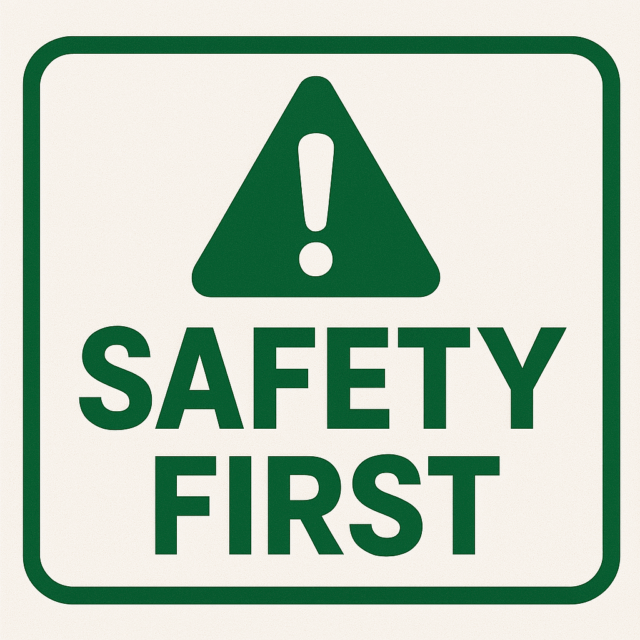Some addicts ask what they can do to encourage the partner they’ve betrayed to trust them again. The answer is complicated, but I believe safety is one of the most important aspects to answering that question. If your partner doesn’t feel safe, it’s unrealistic to expect vulnerability. Safety is as critical to a betrayed partner as water is to a fish for survival. Oxford Languages defines safety as – the condition of being protected from or unlikely to cause danger, risk, or injury. Your past behavior harmed your partner; now you are charged with helping your partner feel safe in hopes of reestablishing trust and moving forward in the relationship.
A lack of safety in the relationship can be very confusing to your partner, who may be trying to heal and participate in some form of healing as a couple. Your partner may find him or herself anxious, which can also lead to depression or a deterioration of their mental health. On one hand, your partner may want to try trusting you, but the confusion or possible mental health struggles caused by a lack of safety keep your partner spinning.
I sometimes use the visual of being inside a beautiful house that is set at the right temperature, but the partner still refuses to take their coat off. The partner will hang out in the house, may even take a peek in certain rooms, but taking their coat off is entirely out of the question because they don’t feel safe. They can’t appreciate the changes in the beautiful house – yet. (In case you’re wondering, the sex addict is the beautiful house in the example.)
Your partner didn’t wake up one day and decide they no longer feel safe in the relationship. Many betrayed partners say learning the truth about their partner’s addiction feels like a truck hit them, which they didn’t see coming. Now, they don’t feel safe to trust what their partner says, share vulnerability with the sex addict, or express emotions. Your behavior destroyed the sense of safety, and now you must restore safety. Is this tough? YES, Are there guarantees? No.
You may be reading this and saying, “I didn’t hit my partner, verbally insult my partner, or blame my partner for my behavior. What do you mean, I need to make my partner feel safe? My partner is already safe with me. I’ve apologized, I’m going to meetings, and I even see a therapist/accountability partner”. My response is, That’s nice, but you don’t get a gold star for that. The behavior you described is to be expected, and it does help your partner trust the sincerity you express about your desire to change – but it’s not enough. Let’s be honest, the above activities help keep you sober and help you feel better about yourself. My question is, what deliberate efforts are you making to help your partner feel safe in addition to the above actions?
Let me give you examples of situations that may make a partner feel unsafe even if the sex addict has apologized, attends meetings, sees a therapist, and/or made amends:
- The partner expresses she’s triggered, and the addict blows her off, expressing that too much time has passed for her to still be triggered.
- The addict says he’s sorry but slips every other week.
- The sex addict doesn’t acknowledge how his or her behavior contributed to the loss of safety their partner feels in the relationship.
- The sex addict doesn’t ask what he or she can do or say to make the partner feel safe.
- The sex addict asks the partner what is needed to provide safety, but makes no deliberate actions to accomplish the desired result.
- The sex addict tells half-truths, which the partner discovers.
- The sex addict doesn’t take the partner’s boundaries seriously.
- The addict doesn’t take their own healing seriously; the addict attends meetings when it’s convenient and doesn’t see the importance of sticking to a program.
- The addict interrupts the partner who is expressing their thoughts and emotions.
- The addict raises his or her voice unnecessarily.
- The addict disrespects the partner.
You may have read the above examples and thought, Yeah, that’s not me. If that’s the case, I’m glad because the list above is more common than most would like to admit. If the list made you mad, please say “ouch,” but hang in there. Please remember that this blog entry is intended to help you in your efforts to have a better relationship with your partner by making your partner feel safe in the relationship.
Please let me offer you some other insights to help you:
Your partner needs complete transparency, even if that means your information may be hurtful at times. Many partners say it’s not so much the “acting out” behavior that is hurtful, but the deceit involved in keeping it buried. Most partners of recovering sex addicts want to know if the addict slips or relapses. Complete honesty in all aspects of your life is critical. Things you think don’t matter in terms of honesty are a big deal to the partner. It’s not worth it to lie about the happy hour you went to after work, the money you pulled out of the account which you used for an expense not agreed upon with your partner, the co-incidence of your previous affair partner being present at a place you didn’t know he or she was going to be at or the porn your buddy showed you that you didn’t refuse to look at even though you know you should have. These things matter to a betrayed partner in need of a sense of safety to continue in a relationship with a recovering sex addict. There is no such thing as a “white lie,” not if you desire to help create safety for your partner.
You need to be emotionally available to your partner, even if that means you endure some heat. Having tough conversations is part of the package because your partner wants to be heard and understood. Your partner may be emotional when you just want him or her to be quiet or get over it; after all, you don’t have to be reminded of your behavior. You need to acknowledge what your partner is saying so they know you heard what was said. You don’t have to agree with everything your partner says, but intentional listening is a “must”. Your partner wants to know how you feel about what they’re expressing. Your partner wants an emotional response from you- not what you think your partner wants to hear. Newsflash: your partner can tell the difference.
For me, I wanted to know who my husband was when he was in active addiction and who he was sober; was there a difference between the two? I wanted to know how he justified his behavior while in active addiction and how he could live a compartmentalized life for so long. I asked tough questions, and he couldn’t answer all of them, but he tried. I wanted to know how he felt after he gave me a disclosure. How he felt when he was sitting at a SA meeting. How did he feel when addiction was mentioned in sermons we attended? I wanted to know whether he had feelings or was he a cold-hearted man. These weren’t pleasant conversations, but for me, it was necessary to understand who my husband was in “active addiction” and who he was trying to be as a “sober recovering sex addict”. Answers to certain questions gave me a sense of security.
I also wanted to know my husband emotionally. I wanted to know how he felt sharing his disclosure and how he felt listening to my cost letter. What did it feel like to know he hurt me so badly? I will say, this is still a bit of a struggle for both of us. These types of conversations require a great deal of vulnerability, but the effort is worth the result. To be fair, I’m a good communicator in writing and public speaking, but not that good at communicating with my husband, so this is something I, too, have had to work on and continue to do so today. My husband will call me out on it when I’m trying to express how I feel about something without using my “feeling” words. Like they say, Progress, not Perfection.
I often use the example of me sitting in a warm bathtub as “safety” versus sitting in a bathtub naked without water, shivering. No one is trying to sit in a bathtub without warm water, shivering. If a partner continues to live shivering, they can become frozen in a relationship because it may not feel safe. Eventually, a partner may disconnect or decide it’s not worth the effort of trying to reconnect because of a lack of safety.
Some of us can exist in an unhealthy marriage because we’ve detached to the point of being frozen. We can talk to the addict, even spend time with the addict, but our heart is closed off; our heart is like a tiny box deep inside of us, which we try to keep safe. Recognizing the challenge of doing this with the very person who made us question our relationship safety in the first place. We go from being angry, shocked, to fearful, and if we don’t see anything from the addict to foster safety to counteract our fear or negative emotions, we just exist, but we never feel safe.
However, I recognize that what I’m talking about is easier said than done. After 11 years of my own healing, with at least half of that time spent healing the marriage. I can tell you – my safety in my marriage is a key component of how I choose to show up. Although it doesn’t occur often, if my husband blows me off, interacts with me unemphatically during an emotional conversation, or raises his voice. I immediately shut down. Not with anger or fear, but with self-love, knowing I don’t have to get into certain discussions with my husband. I also don’t have to be vulnerable with my husband if anything in his behavior makes me feel the tiniest bit unsafe.
When I discuss boundaries with partners of sex addicts. The main thing I encourage them to consider is what will make them feel safe in the relationship and create boundaries with that in mind. For me, safety is the difference between existing in a relationship and thriving in one. When I serve as an accountability partner or sponsor to other people healing from betrayal trauma, I let them know one of my greatest concerns is “their safety,” and many of our conversations will revolve around that because it’s extremely important.
If you think safety will naturally occur in the relationship like a wound heals over time, I hate to tell you it’s not that simple. Partners need to see deliberate change in the sex addict and feel like the addict is concerned about how to create safety in the relationship. Perhaps these suggestions will help:
- Work your program consistently. You think your partner won’t notice, but the truth is, he or she will. Working on your program will also decrease your chances of frequent slips or relapses.
- Look at your partner when you are having a meaningful conversation, especially regarding sex addiction.
- Do not defend yourself if your partner is talking about the facts about your past behavior and how it impacted him or her. You don’t get to convince your partner that accurate information is not that bad, old, or not worth discussing – you don’t get to gaslight your partner.
- Do not argue your way out of feelings or emotions your partner experiences or has experienced due to your addiction. How your partner feels or felt is their reality, even if you think, I didn’t mean for you to feel that way, or that wasn’t my intention.
- Ask your partner what you can do or say to help him or her feel safe.
- Express why your partner’s safety in the relationship is important to you.
- Do not yell at your partner.
- Treat your partner with the utmost respect in the presence of others and in private.
- Pursue your partner’s time without being sexual unless the partner expresses a desire for sex.
- Speak your partner’s love language. If you don’t know what it is, now might be a good time to find out.
- Respect and adhere to your partner’s boundaries, even if that means coming clean if you slip or relapse.
Here are some specific things my husband does that help me feel safe:
- Honors my boundaries and keeps a list of them in his phone.
- I have access to his phone.
- Pursues time together as a couple (he knows that’s one of my love languages)
- Has admitted to a slip previously and changed his sobriety date once on his own initiative.
- He has shared his addiction with our adult children and admitted how he hurt me.
- Consistently works his program despite how long he’s been in recovery and the amount of time we’ve been healing as a couple.
- Apologizes to me when he knows he’s said or done something that is upsetting to me.
- He takes accountability for the addiction when we discuss it.
A partner who feels safe in the relationship is more willing to trust the sex addict. Here’s the thing: a “safe partner” will probably laugh more, smile more, seek time with the partner, pursue the addict more, and perhaps be willing to have intimate conversations. A safe partner will share their heart. Safety is the gateway to the good stuff- your partner trusting you again, true vulnerability, and the possibility of a better chapter moving forward. There are no guarantees, but I believe deliberate efforts to help your betrayed partner feel safe are worth the effort.




